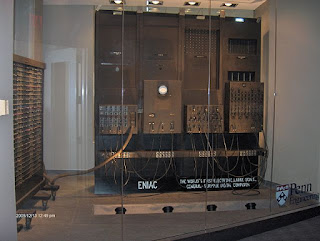About Muhammad Abdus Salam
Abdus Salam in 1987
Born 29 January 1926
Jhang, Punjab, British India (now Pakistan)
Died 21 November 1996 (aged 70)
Oxford, United Kingdom
Nationality Indian (1926–1947), Pakistani (1947–1996)
Fields Theoretical physics
Institutions PAEC · SUPARCO · PINSTECH · Punjab University · Imperial College London · Government College University · University of Cambridge · ICTP · COMSATS · TWAS · Edward Bouchet Abdus Salam Institute
Alma mater Government College University
Punjab University
St John's College, Cambridge
Thesis Renormalisation of Quantum Field Theory (1952)
Doctoral advisor Nicholas Kemmer
Other academic advisors Paul Matthews
Doctoral students Michael Duff · Ali Chamseddine · Robert Delbourgo · Walter Gilbert · John Moffat · Yuval Ne'eman · John Polkinghorne · Riazuddin · Fayyazuddin · Masud Ahmad · Partha Ghose · Kamaluddin Ahmed · Ghulam Murtaza · Munir Ahmad Rashid
Other notable students Faheem Hussain · Pervez Hoodbhoy · Abdul Hameed Nayyar · Ghulam Dastagir Alam
Known for Electroweak theory · Goldstone boson · Grand Unified Theory · Higgs mechanism · Magnetic photon · Neutral current · Pati–Salam model · Quantum mechanics · Pakistan atomic research program · Pakistan space program · Preon · Standard Model · Strong gravity · Superfield · W and Z bosons ·
Notable awards Smith's Prize (1950)
Adams Prize (1958)
FRS (1959)[1]
Sitara-e-Pakistan (1959)
Hughes Medal (1964)
Atoms for Peace Prize (1968)
Royal Medal (1978)
Nobel Prize in Physics (1979)
Nishan-e-Imtiaz (1979)
Jozef Stefan Medal (1980)
Gold Medal for Outstanding Contributions to Physics (1981)
Lomonosov Gold Medal (1983)
Copley Medal (1990)
Cristoforo Colombo Prize (1992)
Spouse
Amtul Hafeez Begum (m. 1949–96)
Dame Louise Johnson (m. 1968–96)
Children Anisa Bushra Salam Bajwa
Aziza Rahman
Signature
Mohammad Abdus Salam[2][3] NI, SPk, KBE[4] (Punjabi, Urdu: محمد عبد السلام; pronounced [əbd̪ʊs səlɑm]; 29 January 1926 – 21 November 1996),[1] was a Pakistani theoretical physicist. Salam, a major figure in 20th century theoretical physics, shared the 1979 Nobel Prize in Physics with Sheldon Glashow and Steven Weinberg for his contribution to the landmark electroweak unification.[5] He was the first (and until Malala Yousufzai the only) Pakistani to receive a Nobel Prize , the first Muslim to win a Nobel prize in science and the second Muslim Nobel Laureate(after Anwar Sadat of Egypt).[6]
Salam was a top level science advisor to the Government of Pakistan from 1960 to 1974, a position from which he played a major and influential role in the development of the country's science infrastructure.[6][7] Salam was responsible not only for contributing to major developments in theoretical and particle physics, but also for promoting the broadening and deepening of high calbre scientific research in his country.[7] He was the founding director of the Space and Upper Atmosphere Research Commission (SUPARCO), and responsible for the establishment of the Theoretical Physics Group (TPG) in the Pakistan Atomic Energy Commission (PAEC).[8] As Science Advisor, Salam played an integral role in Pakistan's development of the peaceful use of nuclear energy, and may have contributed as well to development of atomic bomb project of Pakistan in 1972;[9] for this, he is viewed as the "scientific father"[3][10] of this programme.[11][12][13] In 1974, Abdus Salam departed from his country, in protest, after the Pakistan Parliament passed a controversial parliamentary bill declaring the Ahmadiyya Community as not-Islamic. In 1998, following the country's nuclear tests, the Government of Pakistan issued a commemorative stamp, as a part of "Scientists of Pakistan", to honour the services of Salam.[14]
Salam's major and notable achievements include the Pati–Salam model, magnetic photon, vector meson, Grand Unified Theory, work on supersymmetry and, most importantly, electroweak theory, for which he was awarded the most prestigious award in physics – the Nobel Prize.[5] Salam made a major contribution in quantum field theory and in the advancement of Mathematics at Imperial College London. With his student, Riazuddin, Salam made important contributions to the modern theory on neutrinos, neutron stars and black holes, as well as the work on modernising the quantum mechanics and quantum field theory. As a teacher and science promoter, Salam is remembered as a founder and scientific father of mathematical and theoretical physics in Pakistan during his term as the chief scientific advisor to the president.[7][15] Salam heavily contributed to the rise of Pakistani physics to the physics community in the world.[16][17] Even until shortly before his death, Salam continued to contribute to physics and tirelessly to advocate for the development of science in Third-World countries.[18]





Comments
Post a Comment